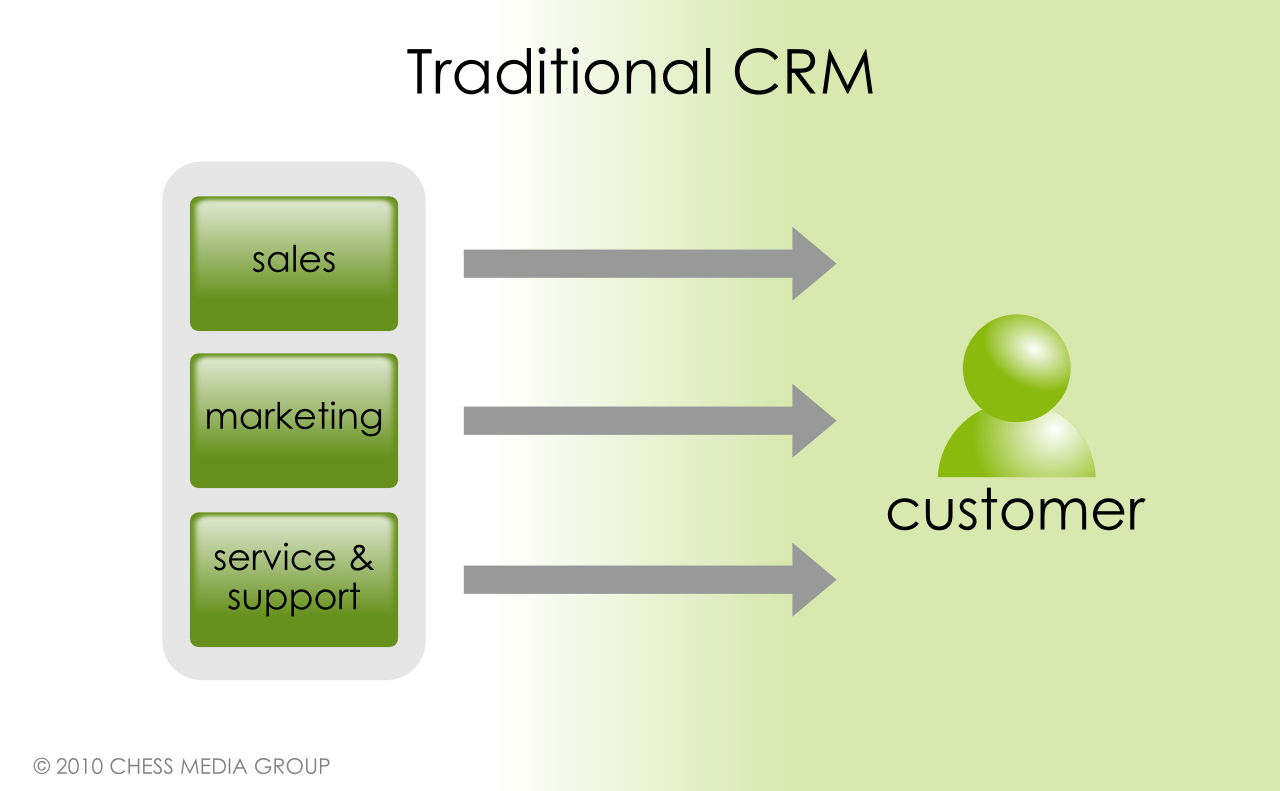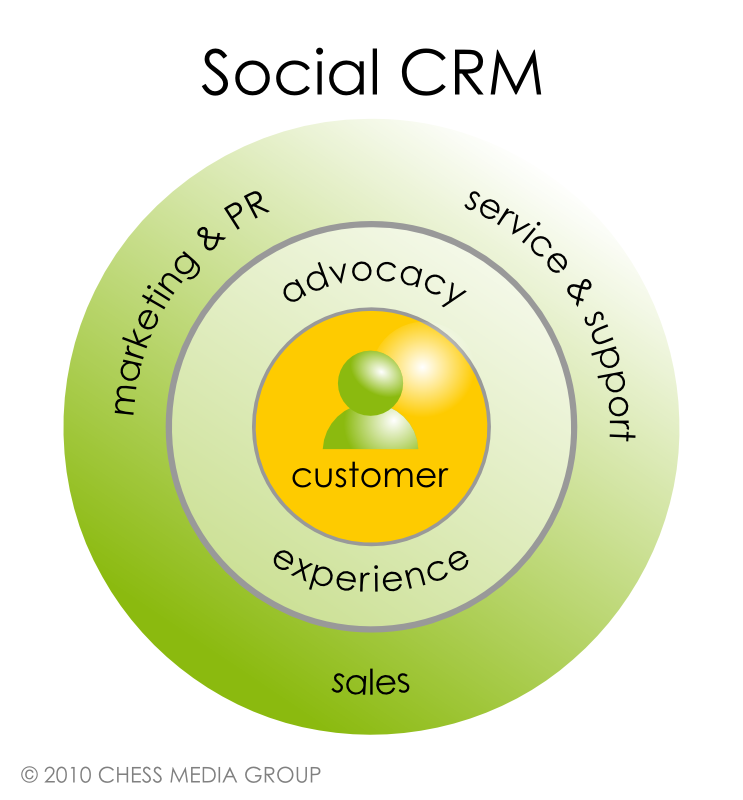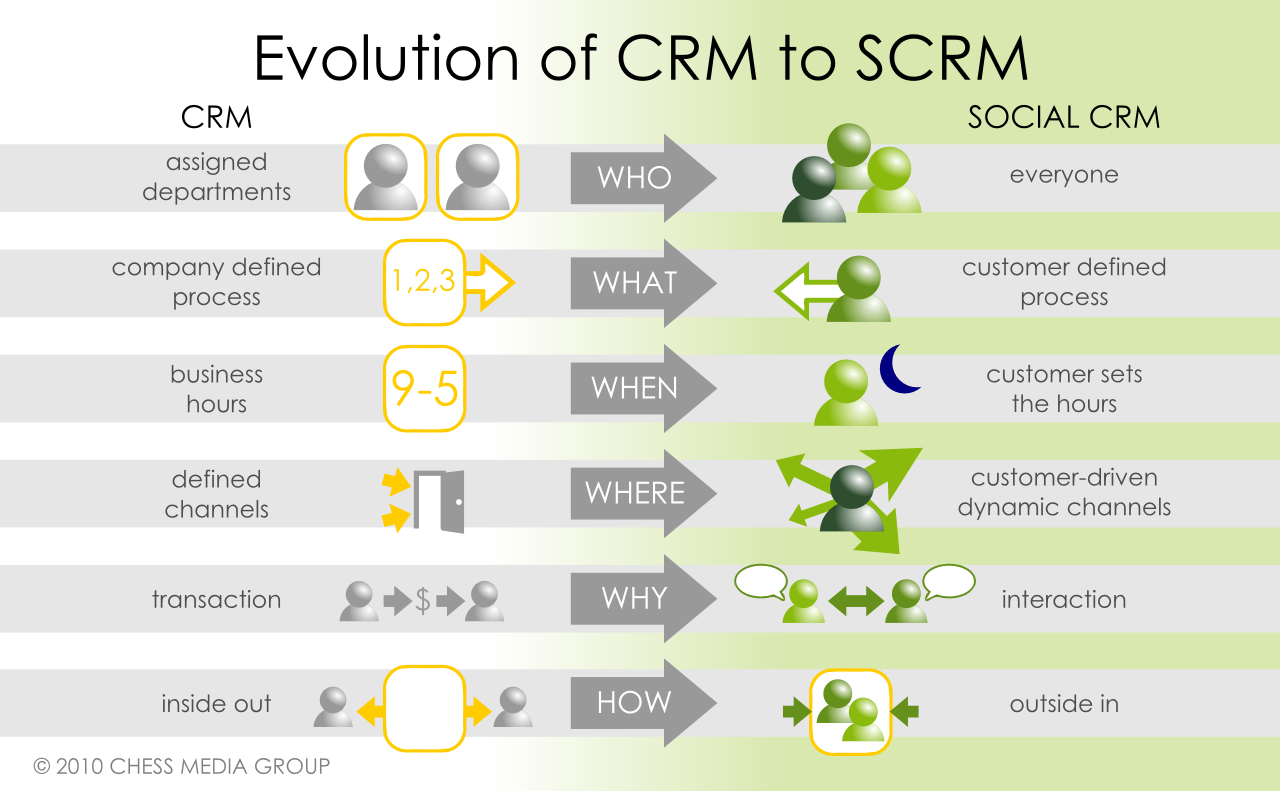 You keep hearing about this social customer relationship management (CRM) thing, right? It's definitely been a hot topic.
You keep hearing about this social customer relationship management (CRM) thing, right? It's definitely been a hot topic.
Here are some important points to consider when thinking about social CRM.
- Social CRM is first a strategy that is often supported by various tools and technologies. The strategy is based around customer engagement and interactions, with transactions being a byproduct.
- Social CRM is still about CRM (but evolved), meaning a back-end process and system for managing customer relationships and data in an efficient and process-centric way.
- Social CRM will mean different things to different organizations. The key is being able to understand the business challenge you're looking to solve, and then solving it.
- Social CRM is one component of developing a social or collaborative business, both internally and externally.
So now that we've laid some groundwork, let's move on to a bit more context for both CRM and social CRM. To do that, here are some visuals from Chess Media Group. (Many of the concepts within in this article are from a joint white paper with Mitch Lieberman.)
Understanding CRM

CRM is comprised of sales, marketing and service/support–based functions whose purpose was to move the customer through a pipeline with the goal of keeping the customer coming back to buy more and more stuff.
Traditional CRM was very much based around data and information that brands could collect on their customers, all of which would go into a CRM system that then allowed the company to better target various customers.
Understanding Social CRM

PR now has a very active role in social CRM (in fact, PR typically owns budgetary control and authority of social initiatives ahead of every other department). In most organizations, PR departments manage the social presence of brands and handle the customer engagement.
The next change we can see is that advocacy and experience are crucial components of social CRM, which all revolve around the customer. In the first CRM image above, you'll see that the customer is not really a part of CRM—there's no collaboration, no relationship.

Discover Proven Marketing Strategies and Tips
Want to go even deeper with your marketing? Check out the Social Media Marketing Podcast! Publishing weekly since 2012, the Social Media Marketing Podcast helps you navigate the constantly changing marketing jungle, with expert interviews from marketing pros.
But don’t let the name fool you. This show is about a lot more than just social media marketing. With over 600 episodes and millions of downloads each year, this show has been a trusted source for marketers for well over a decade.
In social CRM, that has completely changed. The customer is actually the focal point of how an organization operates. Instead of marketing or pushing messages to customers, brands now talk to and collaborate with customers to solve business problems, empower customers to shape their own experiences and build customer relationships, which will hopefully turn into customer advocates.
It's very important to keep in mind that social CRM is not a new “thing” that replaces CRM, it's simply an evolution of what CRM has always been.
Why The Evolution Happened

The chart above is pretty self-explanatory, but let's back it up with a few statistics of how and why people consume and share information.
93% of Americans want brands to have a presence on social media sites (Cone Business in Social Media Study, 2008)
60% of Americans regularly interact with companies on a social media site (Cone Business in Social Media Study, 2008)
Get World-Class Marketing Training — All Year Long!
Are you facing doubt, uncertainty, or overwhelm? The Social Media Marketing Society can help.
Each month, you’ll receive training from trusted marketing experts, covering everything from AI to organic social marketing. When you join, you’ll also get immediate access to:
- A library of 100+ marketing trainings
- A community of like-minded marketers
- Monthly online community meetups
- Relevant news and trends updates
Three most influential factors for consumers when deciding which company to do business with are:
- personal experience (98%)
- company's reputation or brand (92%)
- recommendations from friends and family (88%)
41% of customers believe that companies should use social media tools to solicit feedback on products and services (Cone Business in Social Media Study, 2008)
43% of consumers say that companies should use social networks to solve the customers' problems
Only 7% of organizations understand the CRM value of social media, according to the Brand Science Institute, European Perspective, August 2010
Before deciding whether to purchase recommended products or services, more than four out of five consumers (81%) will go online to verify those recommendations, specifically through researching product/service information (61%), reading user reviews (55%) or searching ratings websites (43%) (Cone Online Influence Trend Tracker, 2010)
Americans will spend 9% more with companies that provide excellent service (American Express)
This is just a small sampling of the available data on the web that shows how consumers are changing and evolving with the growth of social media.
The challenge for organizations now is adapting and evolving to meet the needs and demands of these new social customers. What's shocking from some of the above stats is that many organizations still do not understand the CRM value of social media.
One of my favorite quotes from Gartner states:
“By 2010, more than half of companies that have established an online community will fail to manage it as an agent of change, ultimately eroding customer value. Rushing into social computing initiatives without clearly defined benefits for both the company and the customer will be the biggest cause of failure.”
Social CRM is about moving from fans and followers to customers and advocates.
Have you dabbled with social CRM? What are your thoughts? Please share your comments in the box below.
Attention Agency Owners, Brand Marketers, and Consultants

Introducing the Marketing Agency Show–our newest podcast designed to explore the struggles of agency marketers.
Join show host and agency owner, Brooke Sellas, as she interviews agency marketers and digs deep into their biggest challenges. Explore topics like navigating rough economic times, leveraging AI, service diversification, client acquisition, and much more.
Just pull up your favorite podcast app, search for Marketing Agency Show and start listening. Or click the button below for more information.

